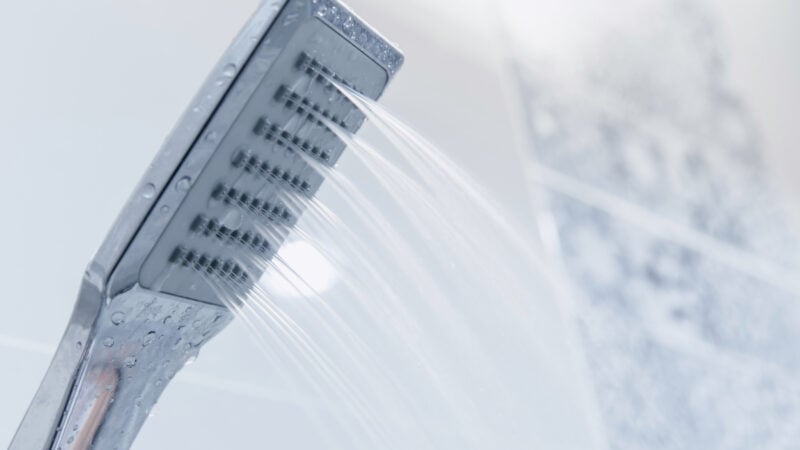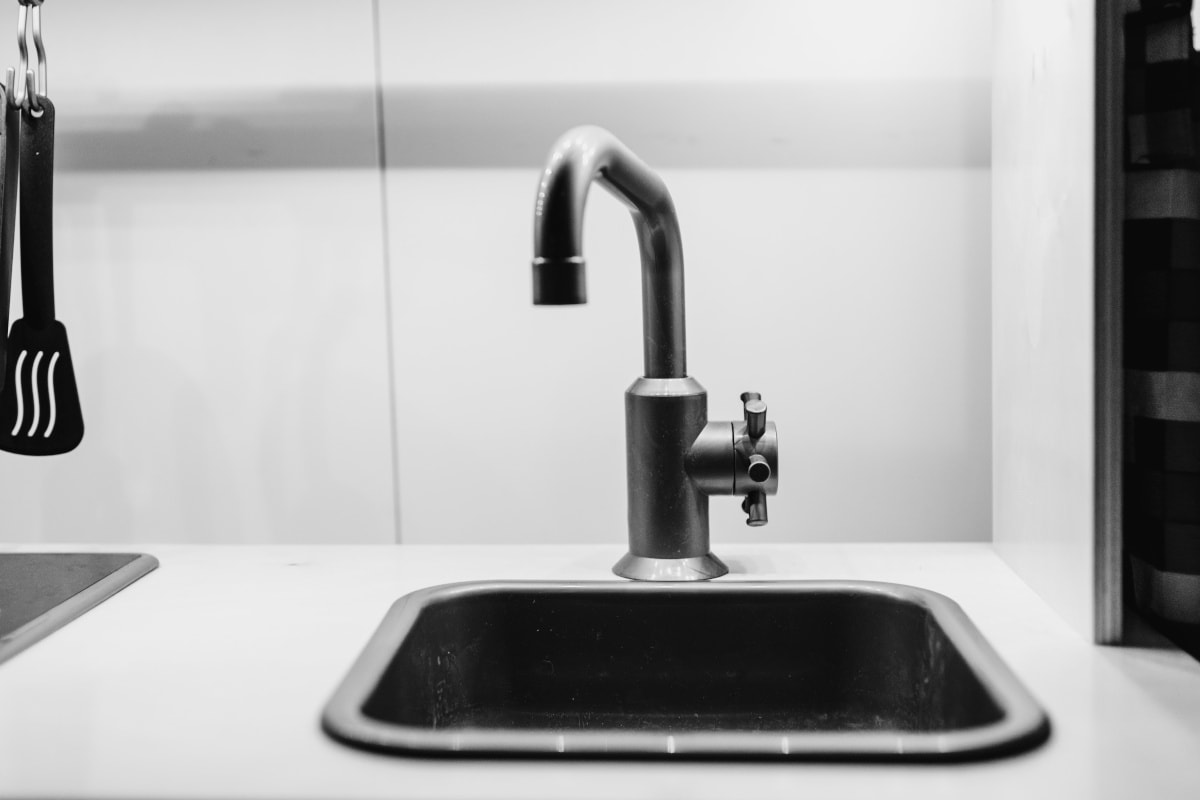What to do if your well water smells of rotten eggs?

Have you ever turned on your tap, only to be greeted by a foul smell reminiscent of rotten eggs? If you rely on well water for your household needs, this unfortunate scenario may sound all too familiar. The culprit behind this odiferous predicament is typically hydrogen sulfide gas, which can infiltrate groundwater and leave it with an unpleasant scent. But fear not! There are practical steps you can take to address this issue and restore the purity and fresh aroma of your well water.
In the following guide, we will walk you through a step-by-step process to identify the source of that pesky rotten egg odor in your well water. We’ll uncover the potential causes behind it and provide actionable solutions to restore your water’s quality once again. Whether you’re experiencing intermittent episodes or a persistent stench, our goal is to empower you with knowledge and equip you with the tools needed to tackle this problem head-on.
So grab a glass of clean drinking water (hopefully without any unpleasant smells!) and join us as we dive into the world of hydrogen sulfide gases in wells. Be prepared for some eye-opening insights as we explore how such odors occur, why they persist, and most importantly – how YOU can reclaim fresh-smelling well water for all your daily needs!
Identifying the source
Step 1: Check for consistency
If you notice that the rotten egg smell is only present when using well water, it is a strong indication that the issue lies with your well. However, to confirm this, it’s important to check if other sources of water in your home, such as taps connected to public water supply or rainwater collection systems, have the same odor. If these alternative sources do not have any smell, then it’s highly likely that the problem originates from your well.
Step 2: Assess water pressure
Another telltale sign that points towards a sulfur-releasing bacteria issue in your well water is a decrease in water pressure when using hot water. Sulfur bacteria thrive in warm environments and can clog up pipes and fixtures over time. So if you experience low pressure specifically while using hot water and detect an unpleasant odor at the same time, it further suggests an issue with your well.
Step 3: Conduct odor tests
To conclusively identify whether or not your well water has a sulfur-related problem, perform simple odor tests at various household locations. Fill containers with samples of cold and hot tap water separately and take them outside where you can safely remove lids or caps without inhaling any potentially harmful fumes. Take note of any distinct rotten eggs smell emanating from either sample – especially if this odor primarily originates from hot tap water as opposed to cold tap or faucet-based options throughout your house – as this will help pinpoint potential causes more precisely.
By going through these identification steps one by one, homeowners will be able to confidently ascertain whether their well water is indeed causing the unpleasant rotten egg smell before moving on to addressing ways of remedying the situation effectively.
Potential solutions
a) Shock chlorination process
One effective solution to eliminate the foul smell of rotten eggs in well water is through a process called shock chlorination. This method involves disinfecting the well and water system with chlorine, which effectively neutralizes sulfur bacteria that cause the bad odor.
To perform shock chlorination at home, it is important to first ensure your safety by wearing protective gloves and goggles. Begin by turning off all faucets in your home and draining any water from the pressure tank. Next, prepare a mixture of chlorine bleach and water (one gallon of bleach per 100 gallons of water storage capacity). Carefully pour this mixture into the well or directly into the pump casing if it’s accessible. Then, turn on one faucet closest to the well until you can smell chlorine; do this for all faucets inside your house as well as outside until each has been treated with chlorinated water.
Let this sit undisturbed for 24-48 hours before flushing out all taps in your home with clean water to remove any residual chlorine taste or smell. It’s crucial to test your well’s bacterial content after performing shock chlorination since repeat treatments might be necessary.
b) Use of aeration systems or air strippers
An alternative solution worth considering is installing an aeration system or air stripper in your water supply line. These systems work by oxidizing hydrogen sulfide gas, effectively reducing odors caused by sulfur compounds present in well water.
Aeration systems introduce oxygen into the contaminated water through various techniques like bubbling or spraying it into contact tanks. This encourages chemical reactions that convert hydrogen sulfide gas into solid particles, which can then be filtered out easily. On the other hand, air strippers use forced air streams instead of direct contact between oxygen and wastewater to achieve oxidation.
Before opting for either system, homeowners need to consider factors such as installation costs, maintenance requirements, available space on their property, and the severity of the rotten egg smell. Consulting with a professional water treatment specialist can help determine whether an aeration system or air stripper is the best fit for your specific needs.
c) Activated carbon filters
Another effective method for removing hydrogen sulfide from well water is using activated carbon filters. These filters work by adsorbing and trapping volatile organic compounds, including hydrogen sulfide molecules present in the water supply lines.
Activated carbon filters contain highly porous absorbent material that provides a large surface area to capture chemical contaminants effectively. As water flows through these filters, it passes over and adheres to the surface of activated carbon particles, allowing the removal of odor-causing substances like hydrogen sulfide.
When selecting an activated carbon filter system, it’s important to consider household requirements such as flow rate capacity and budget considerations. A point-of-entry (POE) system installed where water enters your home generally treats all incoming water, while point-of-use (POU) systems treat only specific faucets or appliances. Assessing your overall household need for filtration and consulting with a trusted professional can aid in making an informed decision regarding which type of activated carbon filter will suit your needs best.
By exploring options like shock chlorination process, installing aeration systems or air strippers, as well as considering activated carbon filtering technology available on the market today; homeowners can find effective solutions to eliminate the unpleasant odor caused by sulfur bacteria in their well water supply lines.
Seeking professional help
When all else fails and the odorous problem persists, it may be time to seek professional help. Consulting with a water treatment specialist can provide valuable insight into your specific situation and offer customized solutions. While some homeowners might hesitate due to cost or a desire for DIY fixes, experts are equipped with specialized knowledge and experience that can address the issue efficiently.
Consultation with water treatment specialist
A water treatment specialist can analyze your well water and identify the source of the foul odor. They have access to advanced testing equipment that can pinpoint any underlying issues causing the rotten egg smell. Additionally, they will recommend suitable treatment options based on their findings.
Many homeowners find peace of mind in consulting a specialist as they receive expert advice tailored to their unique needs. Professionals understand different types of filters, cartridges, and other technology available in the market; thus, they are better equipped at finding effective solutions for persistent rotten egg smells.
Maintenance and monitoring
After implementing treatments suggested by a professional or even applying DIY methods successfully, it is crucial to maintain your water treatment system regularly. This ensures its long-term effectiveness in eliminating odors from your well water.
Regular maintenance includes checking filters and replacing them when necessary. It also involves monitoring any changes in smell or taste over time so that immediate action can be taken if there is a recurrence of sulfur-like odors.
By making preventative measures part of your routine home care agenda, you not only avoid future occurrences but also extend the lifespan of essential components within your system—saving both money and hassle down the line.
Safety precautions
When dealing with any water treatment process, it is important to prioritize your safety. This includes taking appropriate precautions when handling chemicals, such as during the shock chlorination process. Here are some important safety reminders for homeowners addressing the issue of well water smelling like rotten eggs.
- Protective gear: Always wear protective gear, such as gloves and goggles, when handling chemicals. This will help minimize any potential risks associated with direct contact or splashing.
- Ventilation: Ensure that you are in a well-ventilated area while working with chemicals to prevent inhaling noxious fumes or gases that may be released during the treatment process.
- Read instructions: Carefully read and follow all instructions provided by manufacturers for any chemical treatments you use. Avoid shortcuts or improvisation without proper knowledge or guidance.
- Manage chemical storage: Store all chemicals used for water treatment in a safe location away from children and pets, following the recommendations on their labels regarding temperature restrictions and storage duration.
- Disposal guidelines: Properly dispose of all waste products generated during the treatment process according to local regulations and guidelines set forth by your municipality or environmental authority.
Remember, your safety should always come first when dealing with potentially hazardous substances like certain chemicals used in shock chlorination processes to address issues related to well water smell.
Next steps: Addressing the issue
If you’ve determined that your well water has a distinct rotten egg smell, there are several steps you can take to resolve the problem. Here’s what you should do next.
- Identify the source: The first step is to identify where exactly the sulfur odor is coming from. Check if the smell is noticeable in all faucets and fixtures or only in specific ones. This will help narrow down whether it’s an issue with your whole water supply or just certain areas.
- Test your water: It’s essential to conduct a thorough water test to determine the levels of hydrogen sulfide present in your well water, as other factors may also contribute to unpleasant odors. You can hire a professional testing service or purchase a home testing kit for this purpose.
- Check your anode rod: If you have a private well but rely on a hot water tank for heating purposes, chances are your anode rod may be contributing to the rotten egg smell by reacting with sulfur bacteria present in groundwater supplies. In such cases, replacing the magnesium anode rod with one made of aluminum or zinc could help alleviate this gas production and eliminate odors.
- Disinfect your well system: In some cases, contamination from bacteria and sulfur-reducing organisms might be causing unpleasant smells in your well water. Shock chlorination— which involves chlorinating your entire well system—is often recommended as an effective solution for disinfecting wells and eliminating these issues.
- Consider installing filtration systems: If recurring issues persist despite trying different remedies, installing specialized filtration systems can be another viable option.Filtration systems such as activated carbon filters or reverse osmosis systems effectively remove impurities including hydrogen sulfide from household drinking water sources.
By following these steps diligently and consulting professionals when necessary, you’ll be able to address and resolve the issue of well water smelling like rotten eggs effectively.



